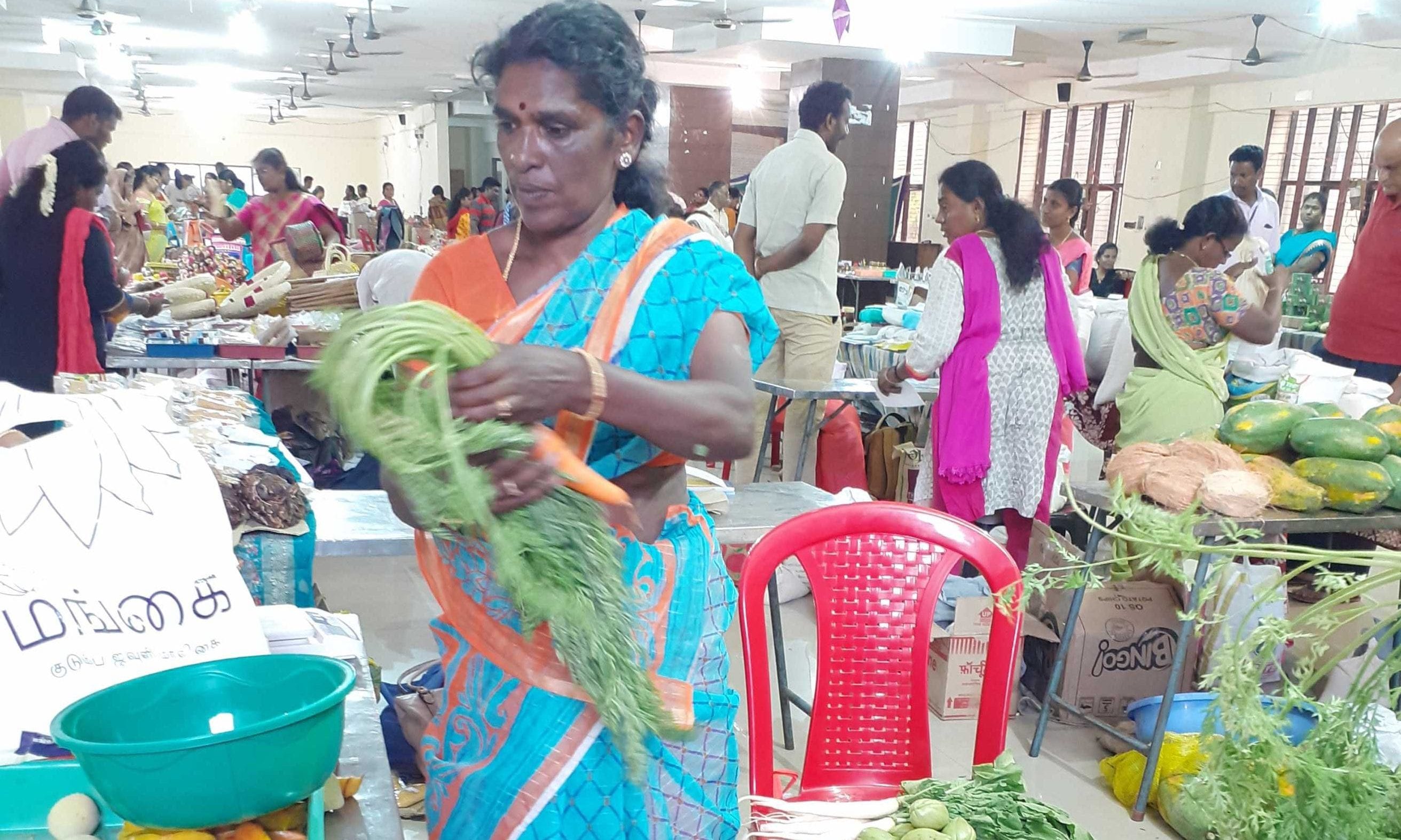
How organic products empower women in Tamil Nadu

Every month, an exclusive marketplace for organic products by women entrepreneurs in self-help groups offers the much-needed boost for empowerment in Tamil Nadu.
The market, which opened on Saturday (July 6) with over 50 stalls put up by sellers from across the state, is an initiative by the Tamil Nadu Corporation for Development of Women.
The twin motto of the project is to give women a fair price for their products by removing middlemen, apart from offering quick and easy access to quality and natural products for buyers.
According to the World of Organic Agriculture 2018 report, India accounts for 30 per cent of total organic producers in the world and they are struggling to find takers. Such programmes therefore alleviate the struggle producers face in finding market.
B Senthil Kumar, executive, Tamil Nadu Supply and marketing Society, says that women have always been an integral part of farming.
Also read: FarmVille comes alive: Contract farming a boon to farmers
“They form a big part of the labour force on the fields. Through organic farming, we are able to bring them to the forefront. This is done through the implementation of Mahila Kisan Sashaktikaran Pariyojana by the Centre in the state,” he says.
The stalls are shortlisted from every district where a designated team checks for every aspect of the production — inputs in the form of natural seeds for vegetables, fruit and grain varieties. And for value added products, the input like oil, salt and seasoning are checked for whether it is organic.
Women lead by experience
As she pored through books on traditional foods to arrive at the best diet pattern for her eight-year-old son, R Nageswari realised that the best way to create a nutritious platter was by growing the food herself. Based in Paramakudi in Ramanathapuram, today she cultivates pirandai also known as adamant creeper and avarampoo (Tanner’s cassia). She has her line of chutneys, powder, pickles and teas made from the plants. Nageswari has also employed five other women who market her products.
“I completed schooling and was a homemaker for many years after marriage. When my son was growing up, I wanted to give him the best of foods and there was nothing more nutritious than the traditional food that I found in my backyard,” she said.
Seethalakshmi from Sivagangai too has a similar story to narrate, but in her case, it was her ill health that prompted her to look for healthier options and then decide to grow different varieties of paddy. “We have a 20-acre land and we grow many varieties like seeraga samba, kitchili samba and karutan samba. We also grow varieties of millets,” she said.
From the hills of Kodaikanal and Kolli Hills in Namakkal, Rani and Poongodi have regular customers in Chennai every time they set up their stalls here. While Rani brings fresh vegetables like beans, carrot, turnip, radish, etc. from her farm, Poongodi has a huge market for peppers and coffee grown in the hills.
“Though I have been practising organic farming for two decades now, the market here has given me an assured set of buyers. Finding continuous buyers has always been a challenge,” Rani said.
The produce sold also includes bamboo products, bio-degradable napkins made of organic cotton, cosmetics, dietary supplements, fruit juices and snacks.
The way forward
While the marketplace is helpful for producers, there are a slew of challenges. “Organic products are priced higher than the non-organic options and many buyers would prefer the latter. A 100 gram packet of organic pepper is sold at Rs 50, but in the market there are cheaper options,” Poongodi says.
Hemalatha and Nithya, who have been making the biodegradable sanitary pads — Mullai Herbal Napkins — for almost a year now, echo a similar complaint. “7 pads cost about Rs 100 and the same number can be bought at half the price in the market. It is hard to make them understand the essence or significant benefits of such a product,” observes Nithya.
Tamil Nadu, in a bid to give a push to organic farming, has now roped in community resource persons who train the women in organic farming in order to make value added organic products.
“We are also undertaking an audit of organic producers in every block which will give us an idea to come up with focussed promotional activity for the products,” he adds.

